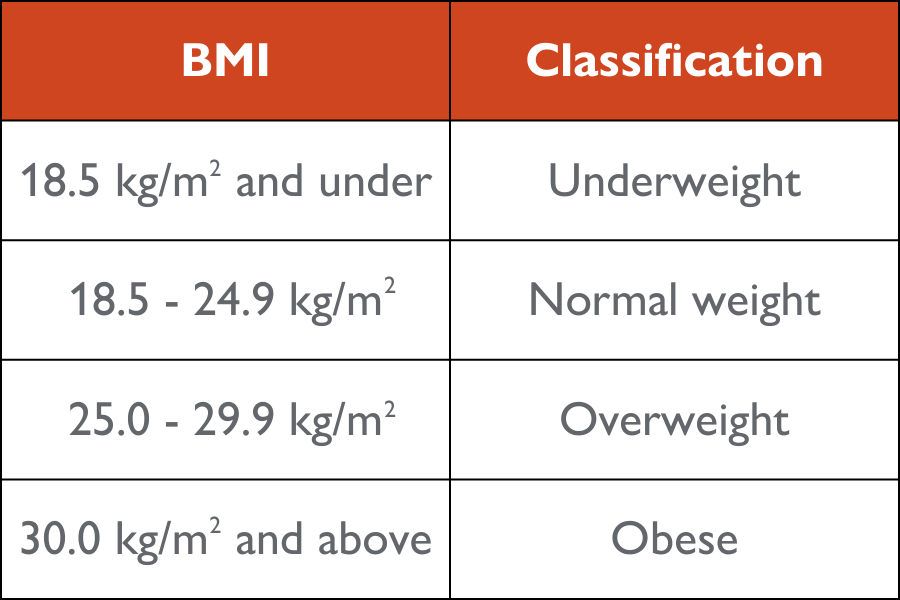Health/Wellness, Patient Blog, Weight Management | May 2 2022
BMI: Implications for your health

Body mass index (BMI) is a ratio of weight and height used to classify individuals into categories of underweight, healthy weight, overweight, or obese. These classifications are used as a screening tool to identify individual risk of developing health issues such as high blood pressure, high cholesterol, diabetes, cancer, and other chronic diseases. BMI is one of the ways to measure obesity in a population, but is it a direct correlation with health status? The short answer is no, and here’s why.
How BMI is measured
To determine an individual’s BMI, weight in kilograms is divided by the square of height in meters. There are also plenty of easy-to-use online calculators to determine BMI. The resultant values are categorized1 as follows:

What BMI doesn’t tell us
Because BMI is not directly measuring body fat percentage or muscle mass, it has some significant limitations. This can be a particular issue with individuals who have a higher muscle mass, like athletes or bodybuilders. Muscle and bone are more dense than fat, so a higher-than-average level of lean mass could result in being mistakenly categorized as overweight or obese.
On the other hand, someone who has a higher fat mass could still be categorized in the healthy BMI range while leading a sedentary lifestyle and practicing unhealthy dietary habits.
Other discrepancies include age, gender, race and ethnicity. Lean mass diminishes with age, women tend to have a higher body fat percentage than men, and some ethnicities have higher percentages of body fat at lower BMIs.2
With so many limitations, why is BMI still utilized?
Since BMI only requires height and weight measurements, it is an easy and inexpensive way for clinicians to screen individuals for further assessment. BMI has a long-standing history of use with evidence for predicting disease risk. The fact is, most of us are not bodybuilders. So for much of the population, the higher the BMI, the higher the fat mass and risk for chronic disease.
If your BMI is categorized outside of the healthy range, should you be worried? Not necessarily. It has been determined that BMI is not a direct indicator of health risk, as it does not take many key factors into account. BMI should be used as a screening tool, with further investigation into actual risk or health status. Pairing BMI with body fat analysis, if available, as well as evaluation of dietary habits, physical activity, and family history will provide a much more accurate indication of individual health risk.
If you have more questions about your BMI, it’s always a great idea to speak with a registered dietitian. Registered dietitians are the only credentialed experts qualified to address your unique health questions.
References:
Centers for Disease Control and Prevention. (2021, August 27). About adult BMI. Centers for Disease Control and Prevention. Retrieved April 8, 2022, from https://www.cdc.gov/healthyweight/assessing/bmi/adult_bmi/index.html
Buss J. Limitations of body mass index to assess body fat. Workplace Health Saf. 2014 June;62(6):264. Doi: 10.1177/216507991406200608. PMID: 24971823.
Who we are
Dietitians On Demand is the nationwide leader in providing dietitians with jobs they love. If flexibility, competitive pay, a full benefits package, free CPEUs each month and a team dedicated to dietitians sound good to you, apply to our positions today.




